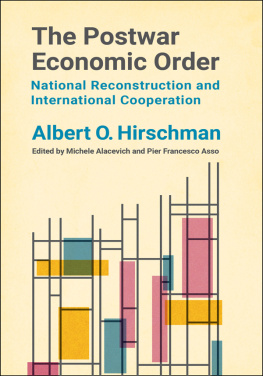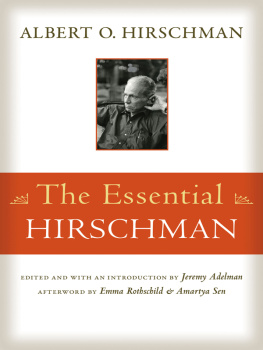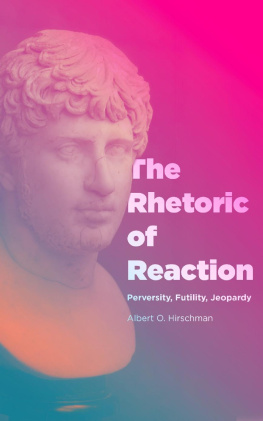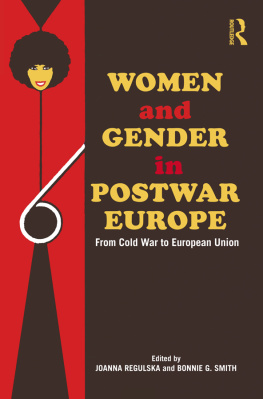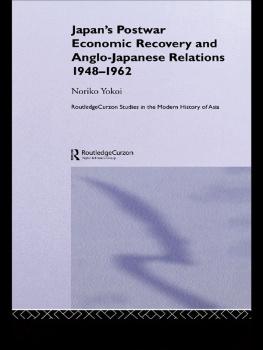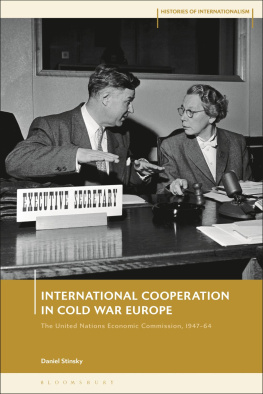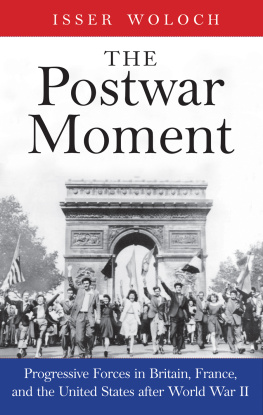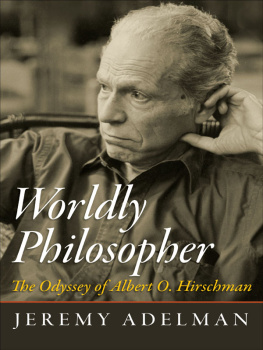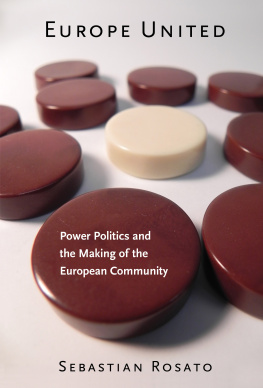Table of Contents
The Postwar
Economic Order
The Postwar
Economic Order
National Reconstruction
and International
Cooperation
Albert O. Hirschman
Edited by
MICHELE ALACEVICH AND
PIER FRANCESCO ASSO
Columbia University Press New York
Columbia University Press
Publishers Since 1893
New YorkChichester, West Sussex
cup.columbia.edu
Copyright 2023 Columbia University Press
All rights reserved
EISBN 978-0-231-55369-8
Library of Congress Cataloging-in-Publication Data
Names: Hirschman, Albert O., author. | Alacevich, Michele, editor. |
Asso, Pier Francesco, editor.
Title: The postwar economic order : national reconstruction and
international cooperation / Albert O. Hirschman; edited by
Michele Alacevich and Pier Francesco Asso.
Description: New York : Columbia University Press, 2022. |
Includes index.
Identifiers: LCCN 2022010627 (print) | LCCN 2022010628 (ebook)
| ISBN 9780231200585 (hardback) | ISBN 9780231200592
(trade paperback) | ISBN 9780231553698 (ebook)
Subjects: LCSH: United StatesForeign economic relations
Europe. | EuropeForeign economic relationsUnited States. |
Marshall Plan. | Economic history.
Classification: LCC HF1456.5.E8 H57 2022 (print) |
LCC HF1456.5.E8 (ebook) | DDC 337.7304dc23/eng/20220627
LC record available at https://lccn.loc.gov/2022010627
LC ebook record available at https://lccn.loc.gov/2022010628
A Columbia University Press E-book.
CUP would be pleased to hear about your reading experience with this e-book at .
Contents
Michele Alacevich and Pier Francesco Asso
I Patterns of European Reconstruction:
Macroeconomic Challenges
II The Marshall Plan and
the End of Discrimination
10 The OEEC Interim Report on the European
Recovery ProgramA Summary
12 The U.S. Recession and the Dollar Position of
the OEEC Countries
III European Integration and
the Way Back to Multilateralism
16 European Payments UnionA Possible Basis
for Agreement
19 Size and Distribution of the Public Debt in
Selected Countries
IV The Economic Consequences
of U.S. Hegemony
20 The Long-Run Effect of Development and Industrialization
Abroad on the United States
21 The Influence of U.S. Economic Conditions on
Foreign Countries (with Robert Solomon)
Editors Acknowledgments
and a Note on the Texts
A lbert O. Hirschman wrote the reports collected in this book while in the employ of the Board of Governors of the Federal Reserve System. Almost all of them appeared in the Review of Foreign Developments, which ran from 1945 to 1975. The reports, which were usually marked Confidential or Restricted, are now in the public domain but remain the intellectual creations of Hirschman. For this reason, we sought permission to publish the texts in this volume from Hirschmans daughter, Katia Salomon, whose enthusiasm for the project was invaluable to us. For comments on a previous version of our introductory chapter, we are extremely grateful to Ivo Maes, Elizabeth Leake, and three anonymous reviewers, who also commented on the structure of the book.
In editing the reports for publication, we have maintained Hirschmans admittedly idiosyncratic and very parsimonious punctuation, as well as his own spelling, hyphenations, format of bibliographic references, and occasional factual and grammatical errors. Only in these latter cases have we provided a correction or a sic in square brackets. Likewise, in the very few instances in which a proposition was clearly missing, we have added it in square brackets.
The first footnote to each chapter provides information that comes directly from the original source, such as the date and place of publication of the report, the level of access to the document (Confidential, Restricted, etc.), or whether the published article had been presented at a conference. Subsequent footnotes are by the editors of the volume.
Hirschmans own footnotes have been turned into the endnotes. Our additions to the endnotes are in square brackets in order to make the distinction between Hirschmans original material and our contributions clear. For example, as was common in those years, Hirschman was often very synthetic and cursory in providing references. Also, he did not use a consistent syntax for references throughout his reports, and at times he provided incorrect information, such as about the volume or year of publication of specific sources. We have left Hirschmans references as they are in the originals (errors included), but we have integrated and corrected them, adding additional information in square brackets. When possible, we kept Hirschmans and our interventions clearly separated, though we also had to be slightly inconsistent: there are instances in which brief square-bracketed interventions within Hirschmans references have been preferred for the sake of simplicity and readability.
.
Albert O. Hirschman at the
Federal Reserve, 19461952
Michele Alacevich and Pier Francesco Asso
A lbert Hirschman is widely known as a founding father of development economics and one of the most important and influential social scientists of the twentieth century. His first proper job, however, was as an economist in charge of the Western European desk of the research branch of the Federal Reserve Board in Washington, DC. His major areas of expertise, developed throughout the 1930s, were international trade and industrial and monetary policies in Italy and France. In 1946, when Hirschman was hired at the Fed, development economics hardly existed, and he had no idea that he would later become a pioneer in the field. As the Fed years predate Hirschmans major works in development, political economy, and the social sciences, scholars have largely ignored them. Yet this early phase of Hirschmans career is important for at least two reasons.
First, it contributes to our understanding of debates and policy decisions about European reconstruction and international monetary cooperation in the early postwar years. By examining Hirschmans work at the Fed, we are able to reconstruct those debates through the eyes of an expert and perceptive participant. Like Dean Acheson, Hirschman was present at the creation of the postwar international system, contributing novel and at times visionary analyses of European reconstruction, the Marshall Plan, exchange convertibility, and a proposal for a monetary authority that anticipated a number of important issues related to intra-European and transatlantic cooperation.
Second, those early analyses informed Hirschmans subsequent, more famous work on development. The essays collected in this book reveal a number of elements that illuminate his intellectual trajectory. During his years at the Fed, Hirschman sharpened his ability to examine processes of policy-making in difficult times, rejecting prefab recipes and developing a sensitivity for inverted sequential processes, inducement mechanisms, and apparently paradoxical solutions in uncertain environments. The roots of what would become the distinctive Hirschmanesque style of thought (to use an expression coined by Walter Salant) are clearly visible in this early period. So even though a discontinuity in his research subject is apparent (international trade and monetary policies in the 1930s and 1940s and development issues in the 1950s and 1960s), a continuity in terms of methodology and attitude was present.

